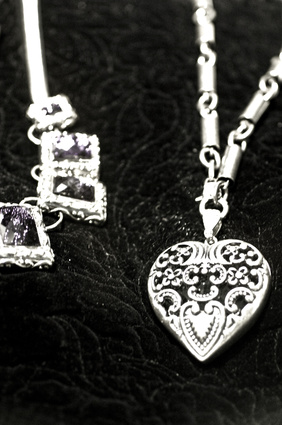
By weight, catalytic converters are one of the most expensive components on your car. Selling a single pound of the pure palladium used in many converters would net you enough to buy a $65,000 house in the suburbs, a 2010 BMW M5, a used 2005 Subaru WRX and a week at Disney World. While most converters contain less than half an ounce of precious metals, a used one can still be worth several hundred dollars to a metal recycler.
Almost all converters use a stainless steel case to withstand the corrosive chemicals and high temperatures the converter must endure.
Some of the more common catalyzing elements are iron/steel, manganese, nickel and copper. These metals are used in different amounts depending on the catalyzation requirements and location. Europe doesn't allow catalytic converters utilizing nickel, which tends to form harmful compounds in the presence of carbon monoxide. Copper is verboten in the United States, because it forms carcinogenic chemicals called dioxins.
While unrefined platinum looks something like cheddar cheese, refined alloys sparkle in a silvery-white. This corrosion-resistant and very ductile metal is prized for use in jewelry-making and sculpture, where it is often used as a tarnish-proof substitute for silver. Platinum is used in both the primary and secondary parts of a three-way catalytic converter, and helps the more specialized metals to more efficiently capture nitrogen and oxygen atoms. As of November 2010, pure refined platinum retails for about $1,745 per ounce.
Rhodium is used in the first of the converter's two catalytic blocks, and reduces emissions by capturing the nitrogen atoms from nitrogen oxide (N2O) molecules as they pass by. This leaves a stream of pure oxygen (O2) flowing through the converter. The captured nitrogen atoms eventually break and combine with other nitrogen atoms to form pure nitrogen gas (N2). As of 2010, refined rhodium retails for about $6,850 per ounce.
Platinum is the flag-ship element of a number of metals referred to as the "platinum group." The rest of this group is composed of ruthenium, iridium, osmium and palladium. While all of these have very similar catalyzing qualities, palladium is the best among them at capturing oxygen atoms. Palladium (along with platinum) is used in the second catalyst block to capture and hold oxygen molecules from the first block's reaction (which produced O2 and N2). The captured oxygen atoms combine with unburnt fuel to create carbon dioxide and heat. That heat boosts the palladium's ability to catalyze carbon monoxide into the more inert carbon dioxide. Pure palladium retails for about $10,427 per ounce at 2010 prices.